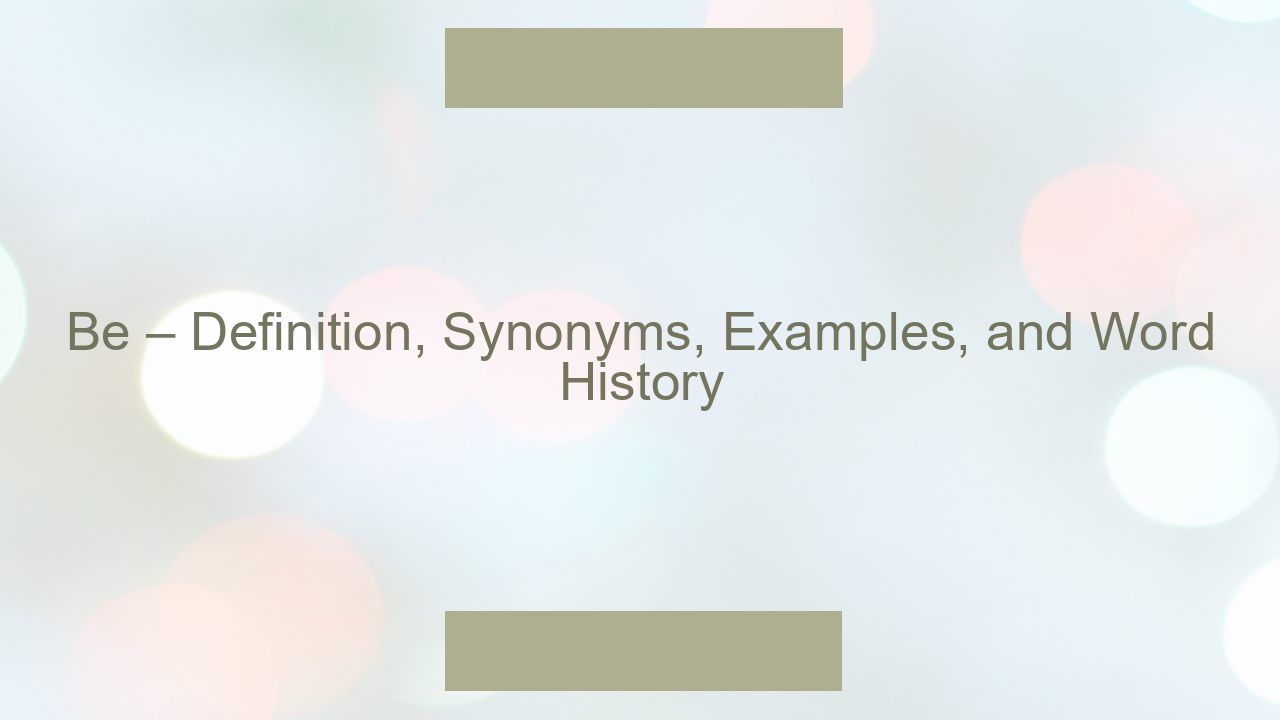The verb “be” is one of the most fundamental and frequently used words in the English language. It serves as a cornerstone of grammar, acting as a linking verb, auxiliary verb, and more, making it essential for constructing meaningful sentences. Understanding the ‘be meaning’ and its various forms is crucial for both native speakers and language learners.
Definition (Meaning)
The word “be” primarily functions as a verb indicating existence, identity, or a state of being. It is used to describe a subject’s condition, location, or role, and changes form (am, is, are, was, were, being, been) based on tense and subject.
Synonyms
While “be” itself doesn’t have direct synonyms due to its unique grammatical role, related concepts can be expressed with words like “exist,” “remain,” or “become” in specific contexts. However, these are not exact matches for all uses of “be.”
Examples of be in a Sentence
- I want to be a doctor when I grow up.
- She will be at the meeting tomorrow.
- They have been friends for over ten years.
Word History
The word “be” traces its origins to Old English, derived from the word “bēon,” which meant “to exist” or “to become.” It has roots in Proto-Germanic and even further back to Proto-Indo-European languages, showcasing its ancient lineage. Over time, its various forms evolved to adapt to English grammar, making it a vital part of modern language structure.

